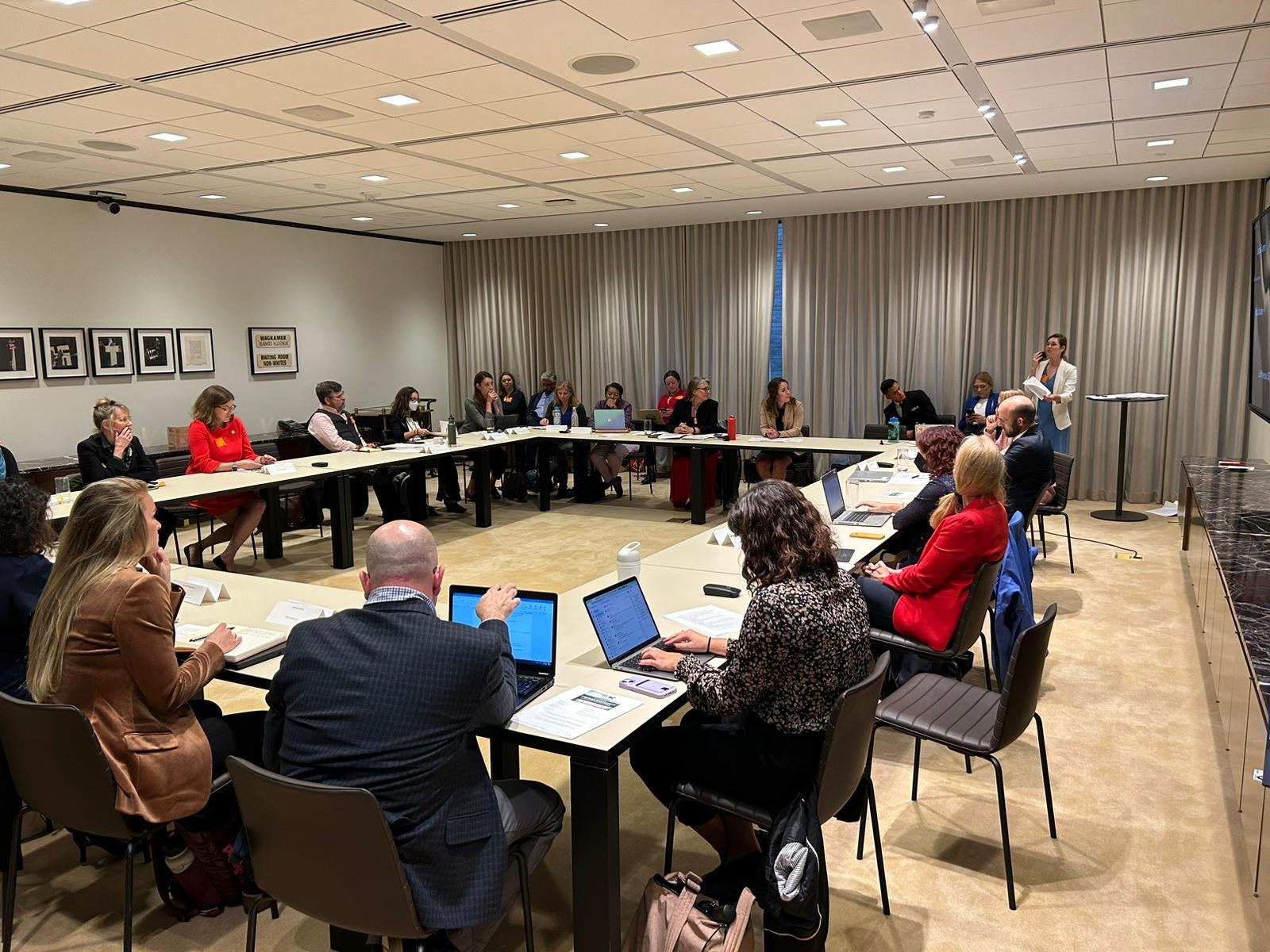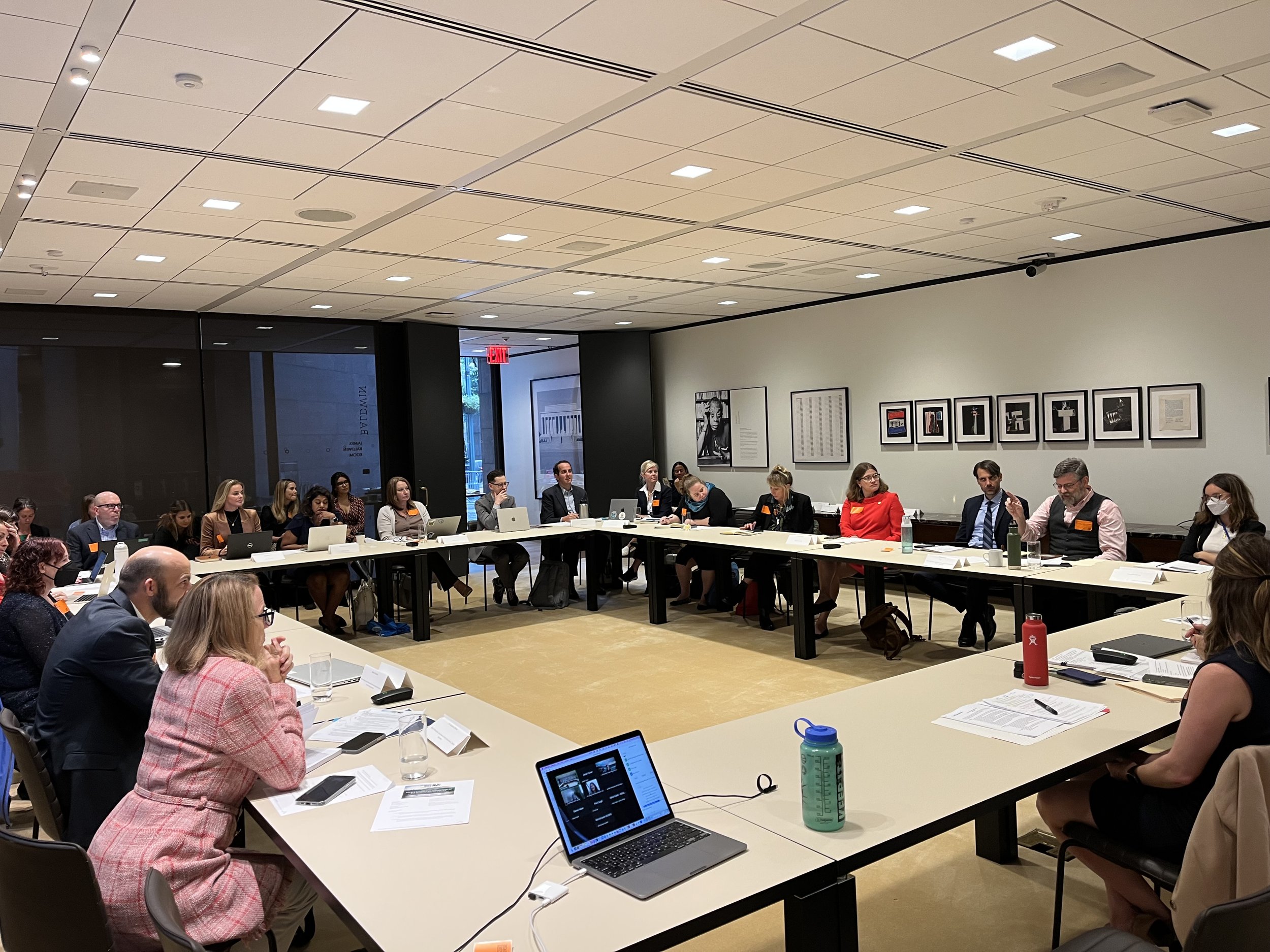Accelerating Implementation: U.S. Climate-Ocean Policy
During Climate Week 2023 in New York City business leaders, policy makers and civil society representatives from all over the world gathered in and outside United Nations General Assembly to drive the clean energy transition, speed up progress to implement the Paris Climate Agreement and related Sustainable Development Goals, and champion real actions that are needed to address climate change and its impacts now.
Strategic management of ocean, coastal, and marine resources—including blue carbon ecosystems, fisheries and seafood—offers coastal states increased adaptation and resilience tools in the face of climate-ocean change, which in turn support ocean ecosystem health, economic vibrancy, preserved cultural identity, and food security.
Federally, the U.S. has led domestic and international leadership on climate-ocean change knowledge and response. On March 21, 2023 the U.S. government released President Biden’s Ocean Climate Action Plan.
U.S. states have been transforming climate-ocean policy by assessing regional risks, prioritizing information needs, incorporating coastal habitats into climate mitigation planning, and formulating local actions to support coastal and community resilience.
On September 18, the OA Alliance partnered with the UN Foundation, Pew Charitable Trusts and Climate Registry to host a meeting of federal and U.S. state partners to discuss integrating climate-ocean policy priorities, information needs and investments.
Participants:
Federal partners:
National Oceanographic and Atmospheric Administration (NOAA); Office of Special Presidential Envoy for Climate; White House
U.S. States:
State agency leaders and Governor’s office policy leads from California, Oregon, Washington, Maine, Massachusetts, Connecticut, Maryland, New Jersey, New York, and North Carolina.
Practitioners:
UN Foundation, OA Alliance, Pew Charitable Trusts, Climate Registry, U.S Climate Alliance, National Caucus of Environmental Legislators, Ocean Conservancy, Nature4Climate US, Ocean Defense Initiative, and US Aquarium partners.
Areas of focus:
Ongoing mapping, evaluation, deployment, and accounting of blue carbon ecosystems to meet state climate mitigation goals.
Improved planning and investments for climate resilient marine resources and coastal communities.
The working meeting brought together U.S. states and federal practitioners around the themes of blue carbon ecosystems; and climate resilient marine resources and coastal communities.
Outcomes included: (1) identification of shared priorities or state/regional needs; (2) recommendations to the federal government in implementing related activities of the Ocean Climate Action Plan; (3) funding to support regional or state programs/ projects.
Moving forward the OA Alliance will be developing a U.S. state member working group, facilitated by the OA Alliance and invited practitioners to explore these themes in more detail.



